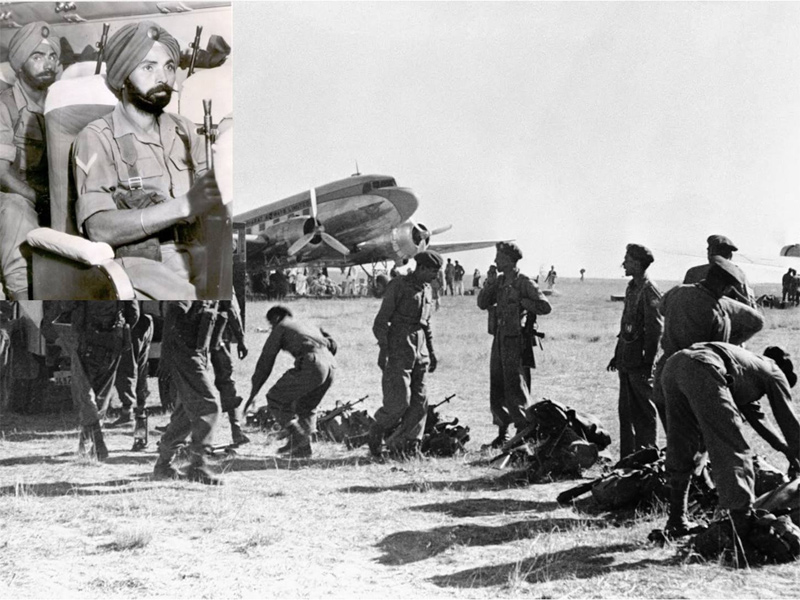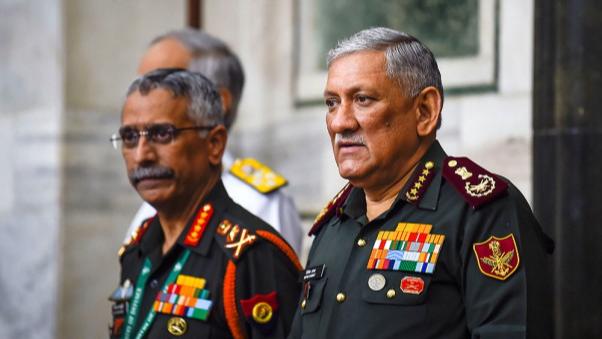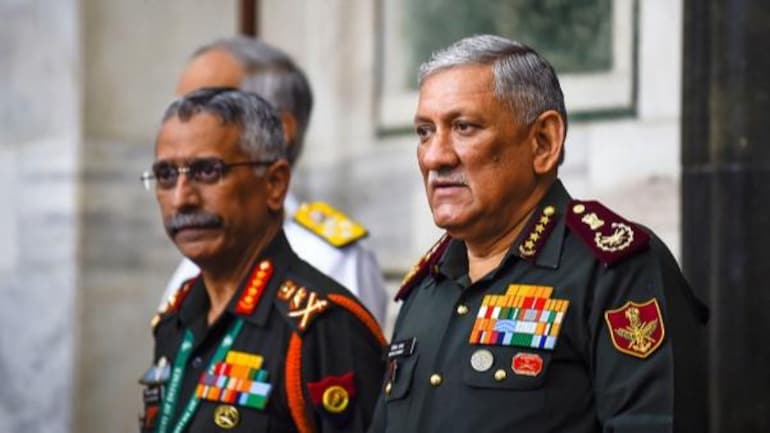A series of alleged construction scams has forced the Indian Army to rope in the CBI to investigate and fix responsibility.

www.indiatoday.in
Even Ladakh not spared, construction scams force Indian Army to rope in CBI
A series of alleged construction scams has forced the Indian Army to rope in the CBI to investigate and fix responsibility.
Shiv Aroor New Delhi, October 29, 2020
UPDATED: October 29, 2020 16:59 IST
Chief of Defence Staff (CDS) General Bipin Rawat (R) and Army Chief General Manoj Mukund Naravane at an event organised to present trophies to best marching contingents of Republic Day Parade 2020, at South Block, in New Delhi | PTI Photo
Exasperated by a series of alleged scams involving construction projects led by the Military Engineer Services (MES), including a massive fake bill racket uncovered in Ladakh during the current standoff, the Indian Army has decided to rope in the Central Bureau of Investigation (CBI) to investigate and fix responsibility.
To kick things off, the Army has handed over a case involving an infamous Army Married Accommodation Project (MAP) in Meerut, Uttar Pradesh to the CBI, and is making a list of several other MES-handled constructions and activities that it wants the central agency to probe as part of a deep dive into the perceived construction rot.
The Meerut project involves faulty construction which has led to a situation where buildings have to be demolished.
Other cases that will likely be handed over to the CBI include a fake bill reported during departmental inquiries into MES construction projects in Leh, Bengaluru, Guwahati and Ahmednagar. The Army's decision to attempt an aggressive crackdown on deep-rooted incompetence and corruption in construction activity was triggered by a September letter written by Chief of Defence Staff (CDS) General Bipin Rawat to the three armed forces chiefs.
In the letter, written after a meeting with the Chief Vigilance Commissioner (CVC), General Rawat highlighted "wrong practices", "delays in payments" and "wrongdoings in MES procedures", declaring that it was "extremely embarrassing" to have had to face questions from CVC on these accounts. Apart from the Meerut project, General Rawat also highlighted other examples of rot, including Army buildings in Kolkata which had begun to tilt owing to shoddy construction, and, notably, a married accommodation project in Delhi's Salaria Officers' Enclave which he describes as a "warzone" in which "not a soul has been punished despite a detailed inquiry".
Weeks after General Rawat's scathing letter, in which he urges the three chiefs to "pinpoint and take to task" those found guilty in inquiries, the Army had to write off a Rs 125 crore ammunition storage depot constructed by the MES in Kanasar near Bikaner in Rajasthan.
Recently, the Court of Inquiry had found that "gross negligence, poor workmanship, poor quality material, has resulted in total loss of the project" and ordered a complete demolition. Accountability is yet to be assigned on individuals for the disastrous execution of a crucial project and loss of valuable resources.
India Today TV has learnt that the Army is formulating a list of activities that it wants to be investigated till the root. These include the rampant tailoring of tenders by the MES, suspicious customisations of requirements to suit certain parties, fudged bills and invoices and favouritism.
While construction controversies ailing the MES is one major aspect of the Army's concern, the other continues to be the land on which these construction projects are being built. The MoD, and organisations under it, own the largest tracts of land in the country, and acquiring such 'defence land' for public works projects like highways and metros has been a complex process leading to delays and meandering bureaucracy. While the erstwhile rules mandated that departments or states acquiring defence land needed to reimburse the MoD with land of equal value (EVL), new rules announced last week pave the way for a new model where the MoD or armed forces can be repaid with equal value infrastructure (EVI), where the buying entity will fund infrastructure construction of equal value on defence land for the selling entity.
While the new policy ostensibly solves a perceived problem and creates opportunities for the Army to monetise its enormous land holdings, there are concerns in sections of the Army over whether this could actually lessen the Army's leverage over its land. For instance, while the Army does have huge landholdings, it still lives with a deficiency of 1.4 lakh acres of 'A1' category land, which is earmarked for Army units. So far, 2100 acres of A1 land (1,500 acres of which are in Maharashtra), valued at Rs 22,000 crore, has already been acquired by state governments for development projects, with no reimbursement (even under the EVL provision) in sight.
In another small but important example cited by sources, the Officers Training Academy (OTA) in Chennai doesn't have a proper firing range, since the land that could have been used for one has been taken over by the Tamil Nadu government under earlier provisions, but no land has been provided as compensation to the armed forces.
While the Army has made no formal objections to the new EVI provisions, an internal debate is understood to have been stirred up over whether the new mechanism will be airtight to political whims and scams.







